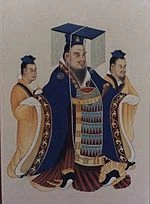How to Pronounce Emperor Wu of Han
#50
Most Popular
Boost
Jun 07, 0156 Chang'an Died on 29 Mar 0087 (aged 69)
emperor Wu-Ti
GeminiEmperor Wu Of Han, Date of Birth, Place of Birth, Family, Facts, Age, Net Worth, Biography and More in FamedBorn.com

emperor Wu-Ti
Gemini